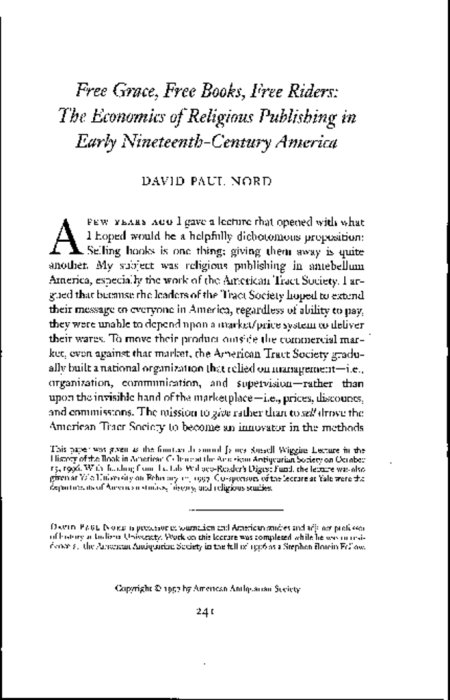This article explores the business strategies of religious publishers in early nineteenth-century America. Because their aim was universal circulation, not profit, religious publishers were inclined to give away their books. But because they needed large revenues to print more hooks, they were also inclined to sell them. How publishers developed pricing and distribution strategies to sell and give away books at the same time is the subject of this essay. Given the not-for- profit goals of the publishers and the economic nature of religious publishing, the author argues, these early mass-media entrepreneurs made sensible, though not always successful, economic decisions. The essay focuses on the Bible Society of Philadelphia (founded 1808) and the American Bible Society (founded 1816), with some attention to other large, national evangelical publishers.
Free Grace, Free Books, Free Riders: The Economics of Religious Publishing in Early Nineteenth-Century America.
Publication Date
Volume
106
Part
2
Page Range
241-272
Proceedings Genre
